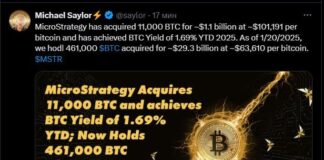Trump calls for Russia-Ukraine peace talks in the Vatican following a call with Putin, while Telegram reels from a $27B crypto laundering scandal tied to Haowang Guarantee and TON blockchain
In an unexpected turn of global diplomacy, U.S. President Donald Trump has proposed immediate ceasefire negotiations between Russia and Ukraine, suggesting the Vatican as a neutral venue. The announcement came after a two-hour phone call with Russian President Vladimir Putin, during which the two leaders reportedly discussed pathways to peace, economic relations, and the possibility of a memorandum outlining the principles of a future peace deal.
Trump confirmed the call via his Truth Social account, saying, “The tone and spirit of the conversation were excellent,” and emphasized his confidence that both Russia and Ukraine would now begin immediate negotiations to bring the war to an end.
Putin echoed this sentiment in a press conference, calling the call “honest” and “useful,” and stated that Russia would propose a memorandum to define the principles, timeline, and conditions for a potential peace agreement — including a ceasefire.
However, no specific timetable for such a ceasefire was agreed upon during the call.
Vatican as a Venue, But Global Patience Is Wearing Thin
Following the conversation, Trump informed key world leaders — including Ukrainian President Volodymyr Zelensky, EU Commission President Ursula von der Leyen, German Chancellor Friedrich Merz, and others — of the Vatican-based negotiation plan, reportedly offered by Pope Leo XIV himself.
Despite these developments, skepticism remains. U.S. Vice President JD Vance signaled a growing impatience within the administration, stating that the conflict was reaching a “dead end” and that the U.S. may need to reassess its role if Moscow fails to engage seriously.
In Europe, leaders have expressed support for negotiations but warned that pressure on Russia will intensify. The EU hinted at increased sanctions as part of its strategy to push for a ceasefire. Ursula von der Leyen praised Trump’s initiative, but reminded allies of the strategic importance of continued U.S. engagement.
Digital Deception: Telegram Purges $27B Haowang Crypto Network
As diplomatic efforts ramp up, the digital world is also undergoing its own reckoning. In a parallel development, Telegram, the popular encrypted messaging platform, has purged thousands of scam accounts tied to a sprawling $27 billion crypto laundering operation known as Haowang Guarantee.
The network functioned as a shadow financial system, exploiting Telegram bots, NFTs, and fake airdrops to launder funds — primarily through USDT (Tether). The crackdown followed the publication of a damning blockchain analysis that laid bare the operation’s scale and reach.
Entire communities had been deceived into engaging with airdrop bots and mining schemes that operated for months — or even years — before vanishing with user funds. According to critics, many of these projects operated under the guise of “TON blockchain partnerships”, casting doubt on the integrity of Telegram’s ecosystem and its decentralized project collaborations.
“This wasn’t just a darknet scam — it was a key laundering network. Telegram needs to refine its protocols, especially for bots distributing airdrops,” one analyst noted. “These schemes resemble bribes more than partnerships.”
A Battle on Two Fronts: Peace Talks and Platform Trust
As the world watches diplomatic channels reawaken under Trump’s presidency, a second battle unfolds in the digital realm — one for security, transparency, and trust. The fall of Haowang Guarantee and the possibility of Vatican peace talks both highlight the complex intersections of technology, geopolitics, and finance.
Whether in war zones or online networks, the need for honest negotiation, strong regulation, and transparent protocols has never been greater.










